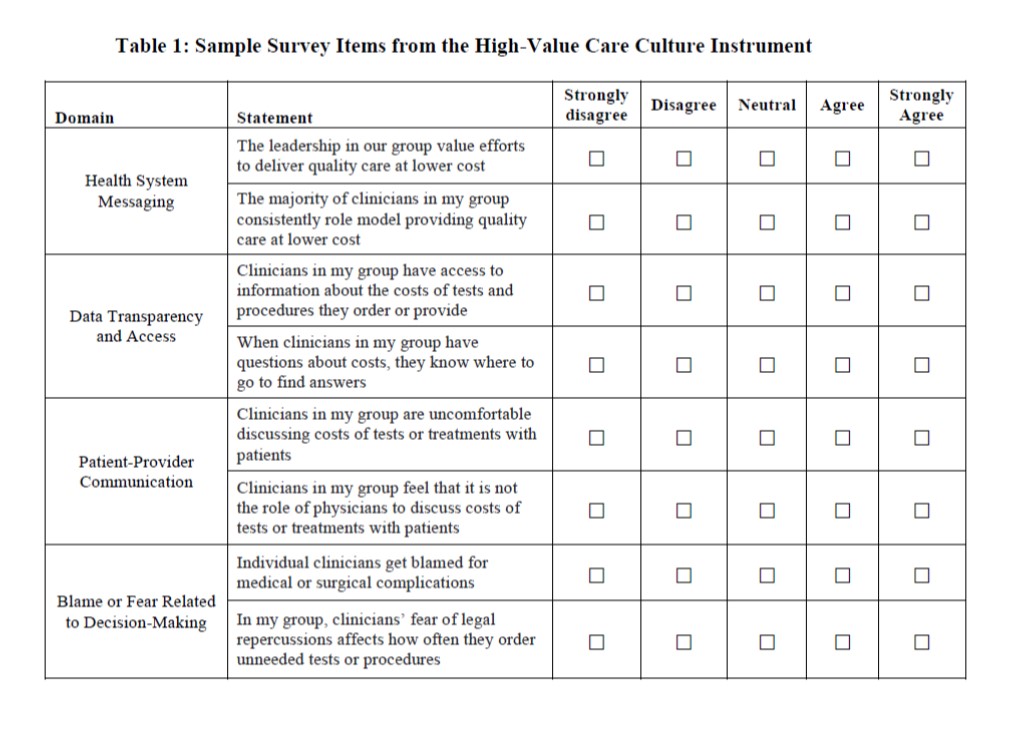Background:
Efforts to improve value within hospitals must engage frontline clinicians to enhance organizational culture. Culture surveys have been used to drive improvements, but currently no such tool exists for measuring high-value care culture. We aimed to develop a High-Value Care Culture Survey (HVCCS) that can be used by hospitalist leaders and residency programs to help target future improvements in delivering value-based care.
Methods:
Our survey development had two phases: 1) a modified Delphi process to identify items for inclusion in the survey, and 2) psychometric evaluation of the survey among internal medicine residents and hospitalists at two large academic Medical Centers.
The modified Delphi process included frontline clinicians and nurses who generated potential survey questions and evaluated face and content validity. This comprehensive list was then sent to a national panel of 28 high-value care experts who rated the importance of each item for survey inclusion in two separate surveys. Experts represented different regions of the country, types of medical centers (academic, county, community, VA), training levels, key stakeholders, and 11 subspecialties.
We then evaluated survey reliability and validity among 100 internal medicine hospitalists and 170 residents at both centers. Psychometric evaluation of the survey consisted of exploratory factor analysis, multi-trait scaling, and confirmatory factor analysis.
Results:
In the modified Delphi process, 26 (93%) of experts responded to our first survey and 22 (85%) to the second survey. Of 79 potential survey items, 37 items reached 70% consensus for inclusion in the final survey.
79 (98%) UCLA residents, 62 (77%) UCSF residents, 39 (83%) UCLA hospitalists, and 34 (77%) UCSF hospitalists completed surveys that were utilized for psychometric evaluation. At least four clear domains have emerged through psychometric evaluation thus far, each with Cronbach alpha coefficients >0.7, showing very good internal consistency (meaning the different survey items proposed in a domain correlate well with each other and measure the same construct): 1) Health System Messaging (α=0.9); 2) Data Transparency and Access (α =0.8); 3) Patient-Provider Communication (α =0.7); 4) Blame or Fear Related to Decision-Making (α =0.7). Sample questions from the HVCCS are presented in Table 1.
Conclusions:
This is the first survey developed to assess high-value care culture among internal medicine hospitalists and residents. We found agreement on survey items that cover key high-value care culture domains among a broad group of frontline experts in value, training, practice, and policy. Our results suggest this survey will be an important tool for groups who aim to improve their culture related to high-value care.
